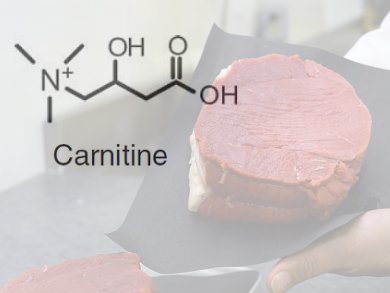High meat consumption is associated with cardiovascular diseases such as atherosclerosis, a pathological thickening of arterial walls that arises from the accumulation of cholesterol. Robert Koeth, Cleveland Clinic, USA, and colleagues elucidated the reason behind this link by discovering that the intestinal metabolism of l-carnitine, a nutrient abundant in red meat, is a key event driving atherosclerosis.
The team demonstrated that intestinal bacteria transform l-carnitine into trimethylamine, an intermediate compound further oxidized by hepatic flavin monooxygenases into trimethylamineoxide. In turn, this metabolite inhibits the catabolism and the intestinal absorption of cholesterol, thereby increasing its plasmatic levels and favoring its accumulation into atherosclerotic plaques.
Inhibitors of l-carnitine conversion to trimethylamineoxide might, therefore, help to prevent cardiovascular diseases.
- Intestinal microbiota metabolism of l-carnitine, a nutrient in red meat, promotes atherosclerosis,
R. A. Koeth, Z. Wang, B. S. Levison, J. A. Buffa, E. Org, B. T. Sheehy, E. B. Britt, X. Fu, Y. Wu, L. Li, J. D. Smith, J. A. DiDonato, J. Chen, H. Li, G. D. Wu, J. D. Lewis, M. Warrier, J. M. Brown, R. M Krauss, W. H. W. Tang, F. D. Bushman, A. J. Lusis, S. L. Hazen,
Nat. Med. 2013, 19 (5), 576–585.
DOI: 10.1038/nm.3145



